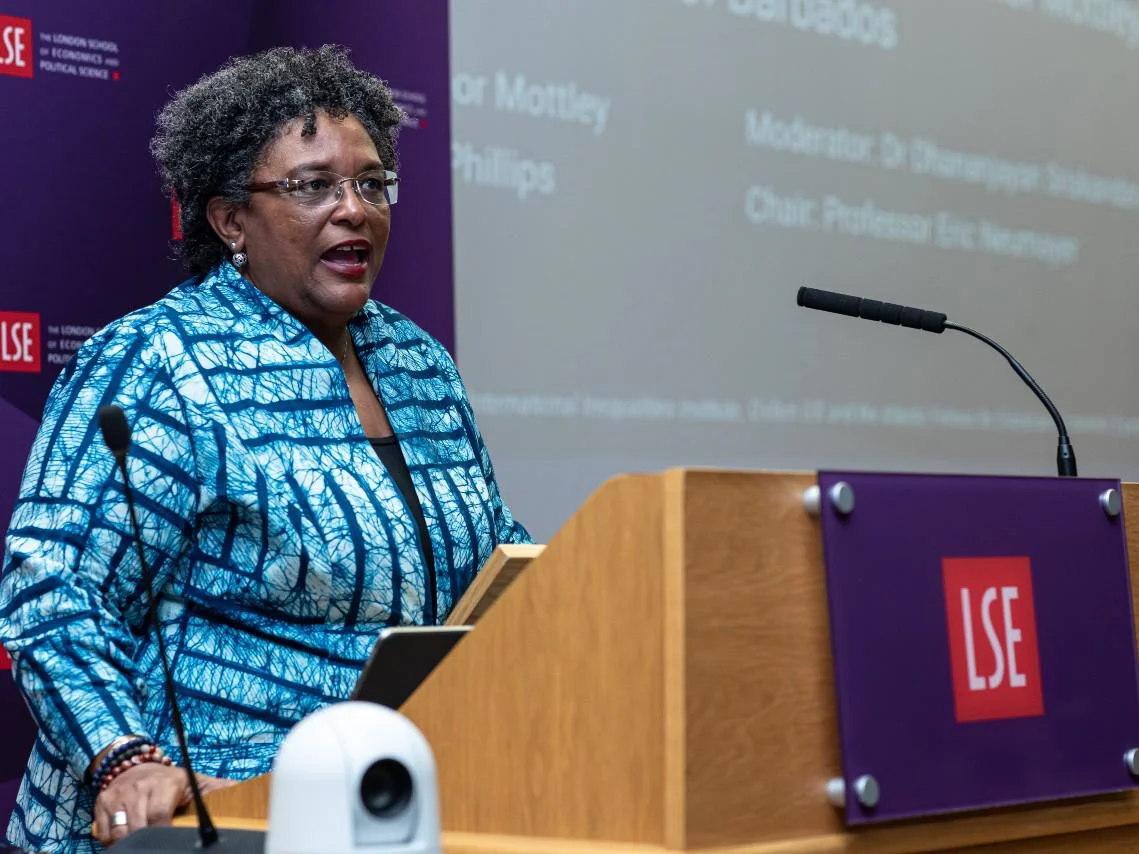Prime Minister of Barbados Mia Mottley visits LSE

Prime Minister of Barbados and LSE alumna Mia Mottley delivered a lecture at LSE last week, in an event organised by Oxfam, the International Inequalities Institute, and the Atlantic Fellows for Social and Economic Equity.
The event was moderated by the CEO of Oxfam Great Britain Dr. Dhananjayan Sriskandarajah and chaired by LSE President and Vice-Chancellor Eric Neumayer.
PM Mottley spoke alongside Barbados’ Poet Laureate Esther Phillips to call for global reparations and advocate for the healing and redemptive power of honest conversations about slavery.
Phillips and Mottley exchanged the microphone throughout the event, with Phillips performing poems that aligned thematically with the PM’s speech.
Throughout the lecture, Mottley connected the legacy of the transatlantic slave trade to contemporary issues of racism, poverty, family, and inequality. Many countries and corporations continue to benefit from the wealth extracted through the exploitation of others, she said, and thus have an ethical responsibility to pay reparations.
"Conversations will be difficult and will take time," Mottley said. "And we’re not expecting that the reparatory damages will be paid in a year or two or five, because the extraction of wealth and the damage took place over centuries, but we are demanding that we be seen, that we be heard, and that we be felt."
In order to address these issues, Mottley emphasised the importance of action at the individual and state level. She advocated for brutal honesty in unpacking unconscious bias and institutionalised racism, as well as "global moral strategic leadership" on the world stage, in which world leaders are guided by principles and a willingness to learn from mistakes and seek redemption.
Mottley, who is well-known internationally for her climate activism, concluded her presentation by connecting the issue of reparations to global governance and the climate crisis, arguing that the global community must confront ongoing inequities as part of the effort to combat climate change.
"Not until we start to reframe how we see each other, not until we start to demand fairness and equity at the core of our international system, not until we understand that there is only one human race on this planet [...] then we have an obligation to define what is the role of each and every one of us in the greatest battle that humanity must face."
Following the presentation, Mottley took questions from the audience about contemporary political issues, including her conversations with Foreign Secretary David Cameron and the role of global financial institutions like the International Monetary Fund.
The full lecture can be found on LSE’s YouTube account.